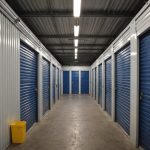Trading across borders is a critical aspect of international commerce, and Calais, with its strategic location, plays a significant role in trade between the UK and the European Union. Since Brexit, there has been a notable increase in the complexity of customs compliance for businesses engaging in cross-border trade. Understanding the regulations governing customs at the Calais border is vital for ensuring smooth trade operations. This article provides insights into the importance of customs compliance when trading across the Calais border and highlights essential steps and strategies for managing the process effectively.
Understanding customs compliance at the Calais border
Understanding customs compliance at the Calais border involves adhering to post-Brexit regulations, ensuring accurate documentation, and paying necessary duties for smooth trade. You can click on https://www.asalinks.eu/ for more details.
This might interest you : What Strategies Can UK Hotels Use to Enhance Customer Experience Through Personalization?
Customs regulations post-Brexit
Following Brexit, the UK no longer benefits from the EU’s single market or customs union, leading to a shift in how trade between the UK and EU is handled. Now, goods moving across the Calais border must comply with both UK and EU customs regulations. This involves ensuring that all goods are accurately declared, duties and VAT are paid, and proper paperwork is provided for customs clearance. Businesses must also ensure that their goods meet the necessary quality and safety standards set by the importing country.
For companies trading through Calais, it is essential to stay updated on the changing rules and regulations to avoid delays or fines. A thorough understanding of post-Brexit customs requirements, such as import declarations, customs duties, and the use of the Goods Movement Reference (GMR), is necessary to facilitate smooth border crossings.
Also to see : How Can UK Car Manufacturers Implement Circular Economy Principles?
The role of customs declarations and paperwork
When trading across the Calais border, one of the most crucial aspects of customs compliance is the accurate completion of customs declarations and paperwork. These documents include invoices, certificates of origin, export declarations, and safety and health certifications, which are all required by both the UK and EU authorities. Incorrect or incomplete paperwork can result in significant delays at the border, potentially affecting delivery schedules and increasing operational costs.
Businesses need to ensure that their customs brokers or logistics partners are well-versed in the latest documentation requirements. By proactively preparing and submitting the necessary paperwork, companies can minimize the risk of border delays and ensure compliance with customs regulations.
Streamlining the customs process across the Calais border
Streamlining the customs process across the Calais border involves utilizing pre-clearance systems and automated technology to reduce delays and improve efficiency.
Using customs pre-clearance systems
One effective way to streamline the customs process is by using pre-clearance systems. These systems allow businesses to submit their customs documentation before arriving at the border, reducing wait times and making the entire process more efficient. Pre-clearance systems, such as the UK’s Customs Declaration Service (CDS) and the EU’s Import Control System (ICS), enable companies to clear their goods before they even reach the border, ensuring that the necessary inspections and approvals have been completed.
Leveraging technology and automated systems
Automated customs systems, like the New Computerized Transit System (NCTS), allow goods to move across the Calais border more seamlessly by automating and simplifying the customs declaration process. These systems help businesses ensure that all necessary information is submitted and processed in real-time, improving accuracy and speed. Moreover, adopting technologies like Electronic Data Interchange (EDI) and blockchain can further streamline communication between businesses, customs authorities, and logistics providers.
In summary, navigating customs compliance when trading across the Calais border is essential for ensuring that goods are transported smoothly and without delay. With the post-Brexit landscape adding complexity to the process, it is more important than ever for businesses to understand the regulations, leverage technology, and ensure their documentation is accurate. By streamlining their customs processes, staying informed, and partnering with the right logistics providers, businesses can effectively manage border operations, mitigate risks, and maintain efficient cross-border trade.






